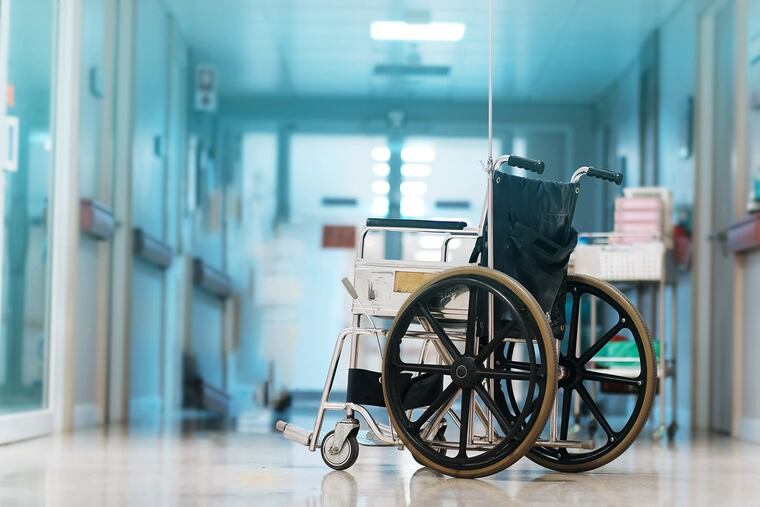Pandemic far from over in nursing homes | Editorial
Nursing home residents account for at least one third or more of all the COVID-19 fatalities in Pennsylvania and New Jersey, which like other states were ill-prepared for the pandemic.

As the coronavirus exacts a grim toll among nursing home residents and employees in experts warn that any slowdown in the pandemic’s spread will not lessen the likelihood of a second wave of infections. Nursing homes and public health agencies were ill-prepared for a pathogen that has claimed 26,000 lives in these facilities nationwide. So the June 2 release of an analysis of New Jersey’s response to the outbreak in the state’s 370 nursing homes — with recommendations on preparing for a resurgence — is welcome. As are assurances by health officials in Harrisburg that preparations are underway as well in Pennsylvania.
About 1.4 million Americans live in nursing homes, including about 75,000 in Pennsylvanian and 45,000 in New Jersey. These are people generally vulnerable to the virus because of age, chronic pulmonary and other ailments, and the close quarters in which they live. Patients also have numerous daily contacts with health care workers who may inadvertently carry the virus into the facility, or back to their own families and communities.
So while nursing home residents are less than five percent of the country’s population, they comprise at least a third of the 110,000 COVID-19 fatalities nationwide. And more than half of coronavirus deaths in New Jersey, Pennsylvania, and Philadelphia have been among nursing home residents. This shouldn’t have happened, and should not be allowed to happen again.
The 100-page analysis by Manatt Health cost New Jersey taxpayers $500,000 and recommends setting up a statewide emergency operations center for nursing homes, higher pay and additional training for employees, better oversight, and more “transparency and accountability.” The analysis also noted that close to a third of the state’s nursing homes had "infection prevention and control deficiencies’ in 2017. And nearly a quarter of all New Jersey nursing homes had such deficiencies “in multiply consecutive years.”
The pandemic has drawn wide attention to inspections, also known as surveys, of America’s 15,000 nursing homes. A U.S. Government Accountability Office report released in May found that “persistent lapses” in infection control procedures as simple as hand washing have been widespread. Nursing home owners, including for-profit companies that have three-quarters of all such facilities in the United States, that have not been paying attention to the basics need to do so.
A spokesman for the Pennsylvania Department of Health said last week that as of May 15, the state was in the process of completing 657 onsite and virtual surveys of nursing homes, some involving multiple assessments. New Jersey health department officials said 115 nursing homes and 27 related facilities have been inspected as of June 3, and that “infection control focused surveys” mandated by the federal Centers for Medicare and Medicaid Services (cms.gov).will be conducted at all nursing homes in the state by July 31.
All well and good. But the fact remains that other measures, such as universal testing of nursing home residents, still remain a goal, not a reality. The New Jersey report and the inspections under way in Pennsylvania are the barest beginning of what states, and nursing home owners, must put do to be ready for when the next wave hits.